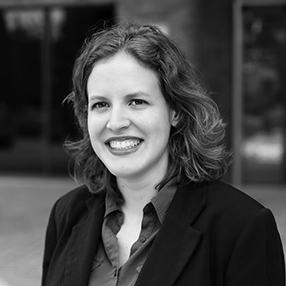Dream Job
Editorial Assistant. Executive Assistant. Administrative Assistant. Writing
Center Director. Writing Teacher. Receptionist. Poetry Fellow. Technical
Writer. Barista. Waitress. Applying for three jobs a day doesn’t get me a
job. I get an offer from the diner and then the diner burns down. I flop an
interview at the local Subway. I make a couple hundred a month writing
blogs for hotels I cannot afford. I write a blog about Benjamin Franklin’s
Ghost House. It’s a chalk outline in the ground where his house was torn
down. I have a Ghost Life. My friends all get jobs. I know because they
each come to the bar with a polished eye around their neck. The eyes can
foresee only positive futures. In the future, my friends eat takeout and
rescue a dog. They have children they’ve made on purpose and call by
fashionable names. I try to look into their job-eyes, and the eyes close
their bulbous lids. The lids make a horrible smacking sound like someone
closing their mouth to go hmmmm—then not saying what everyone knows
they want to say. Was my phone voice too weak? Did my neck look too
brittle to hold a full-size job-eye? The lease is running out much faster
than my life is. Every day, my apartment gets one-cubic-inch smaller. The
walls get so short I only have room for the bed. I lie there and dream of
having any real job.
Copyright © 2024 by Nicole Connolly. Originally published in Poem-a-Day on July 1, 2024, by the Academy of American Poets.
“This poem is essentially about the personal madness of unintentional unemployment. Life moves forward, and it seems everyone else moves forward with it, while you are regressing. Your previous accomplishments are nothing unless validated by an employer. You try to preserve your savings as a buffer against destitution (but still must spend); your routine (and all of its healthy habits) decays; and your dreams and ideals become increasingly senseless against the machinations of capitalism. At least that was the case for me, tragically unemployed after graduate school.”
—Nicole Connolly

